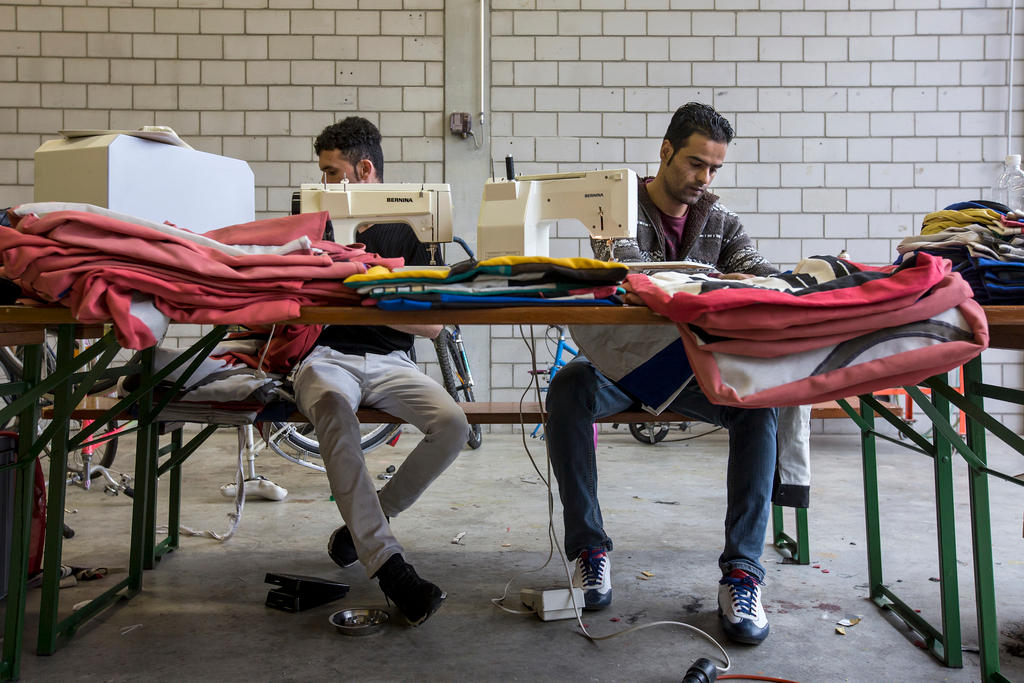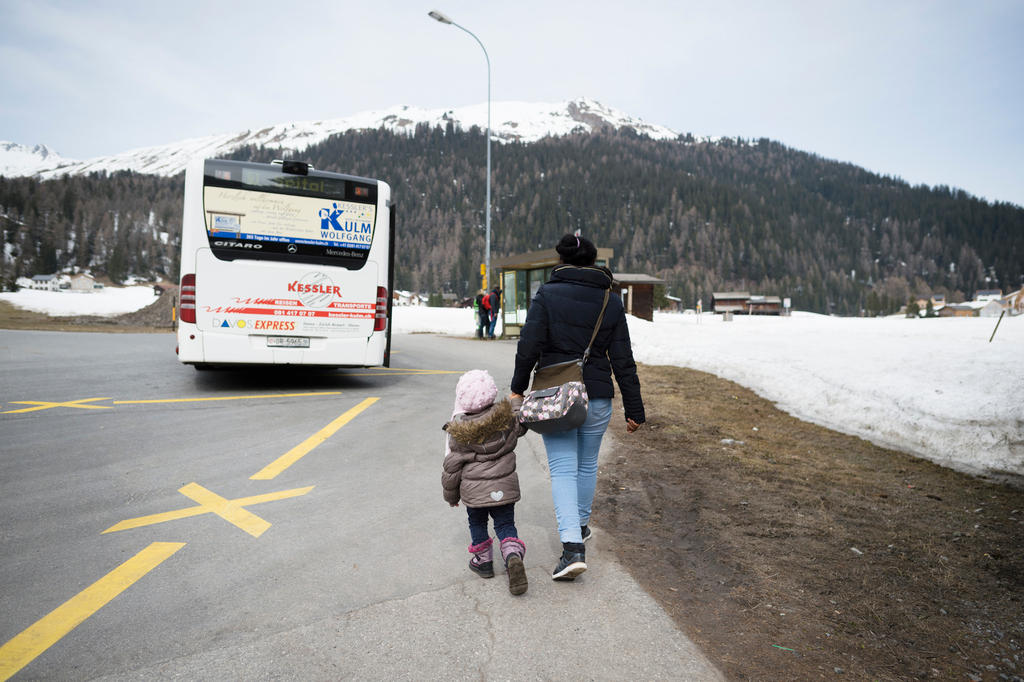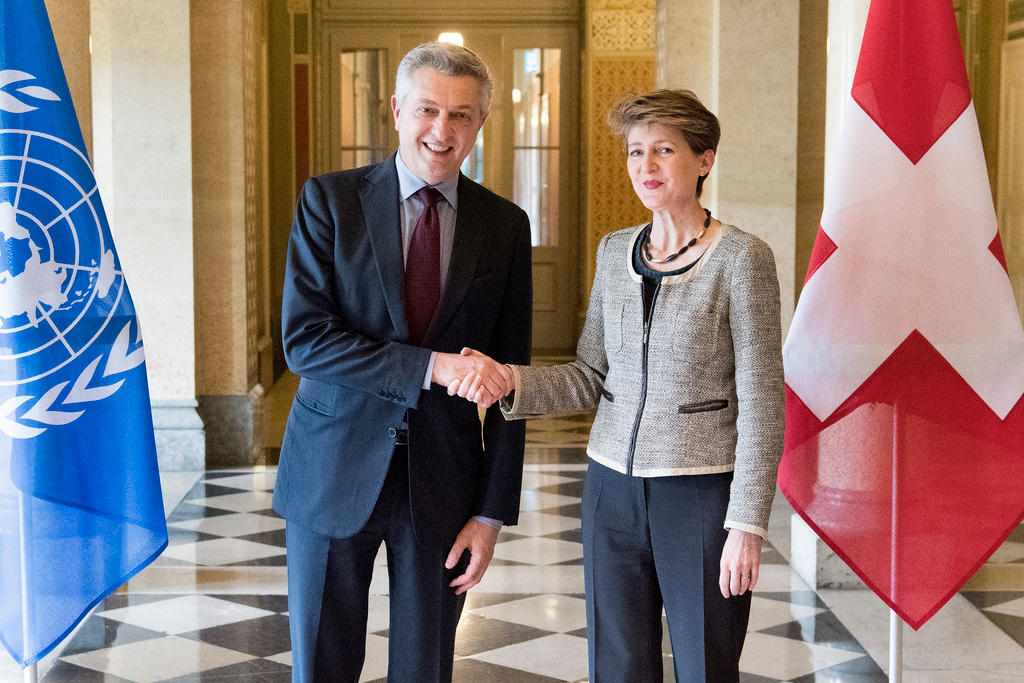Sixty migrants found on train in Switzerland

Around 60 migrants have been picked up after the train they were on pulled into Bellinzona station in southern Switzerland. It is the largest number ever found on a Swiss train, according to border authorities.
The individuals, most of them men from Eritrea, were then transported by rail police and border guards to the asylum seeker reception centre in Chiasso, canton Ticino, where their personal data could be checked and they could apply for asylum.
The train had left Milan early on Tuesday, according to border guard spokesman Mirco Ricci. He explained that the authorities had not acted until the train reached Bellinzona because the stops in Chiasso and Lugano had been very brief.
If the migrants choose not to apply for asylum in Switzerland, they will be sent back to Italy immediately, Ricci said.
Refugee relocation
Almost 6,000 applications for asylum were lodged in Switzerland in the second quarter of 2016, the State Secretariat for Migration reported on Tuesday. This is around 25% less than the previous quarter and 20% less than the second quarter of 2015.
However, the first six months of 2016 saw a total of 14,277 asylum requests made, 20% more than the first six months of 2015. Most applications were made by people from Eritrea, Somalia and Syria.
As part of the resettlement programme of the UN’s refugee agencyExternal link, 231 refugees entered Switzerland in the second quarter of 2016. Most are Syrians who had come from Lebanon, but the figure included 24 Iraqis and Iraqi Palestinians who were in grave danger in Syria, according to the State Secretariat for Migration.
In addition, 34 people came to Switzerland via Italy in May seeking protection – the first to do so as part of the European Union’s relocation programme. The migration office did not disclose their nationalities. This programme aims to distribute some 160,000 refugees who have arrived in Europe around member states and non-EU Switzerland.

In compliance with the JTI standards
More: SWI swissinfo.ch certified by the Journalism Trust Initiative












You can find an overview of ongoing debates with our journalists here . Please join us!
If you want to start a conversation about a topic raised in this article or want to report factual errors, email us at english@swissinfo.ch.